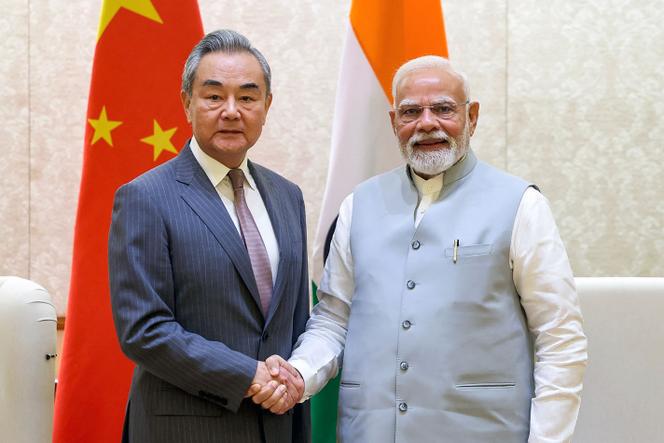

Could President Donald Trump's tariff policy and his actions on the international stage backfire on him? Less than five months after proclaiming April 2 as "Liberation Day," supposedly freeing the US from injustices imposed by global trade imbalances, the policy appears to have been largely counterproductive for Washington politically.
This blowback is most evident in countries in the so-called Global South that were hit with arbitrarily assessed tariff increases. In response, these countries have tended to strengthen their ties with China. Two major countries of the Global South, India and Brazil, in particular, pushed back against Washington's dictate by turning toward Beijing. These countries are also partners within the BRICS, a non-Western organization whose acronym stands for its original member states: Brazil, Russia, India, China, and South Africa.
In particular, India, on which the Trump administration imposed 50% tariffs as a sanction to pressure it to stop importing Russian oil, has moved toward a significant rapprochement with China. On Tuesday, August 19, Chinese Foreign Minister Wang Yi met in New Delhi with Prime Minister Narendra Modi. India's leader is set to meet with President Xi Jinping at the end of August in China for a summit of the Shanghai Cooperation Organization (SCO), another multilateral institution formed outside of Western structures. The Chinese minister welcomed this "important opportunity to improve and intensify ties" between the two Asian giants, whose border conflict has stabilized.
The Chinese ambassador to India, Xu Feihong, went even further, declaring Thursday that China "firmly opposes" the tariffs imposed by Washington on India and stating Beijing's solidarity, saying it "upholds the multilateral trading system." "Silence only emboldens the bully," he added. The situation was all the more uncomfortable for New Delhi given that Mr. Trump, in contrast, granted Beijing a new 90-day reprieve, even though China, ahead of India, is the leading importer of Russian oil.
Amid the dramatic deterioration of relations with Trump, Modi sent his foreign minister, Subrahmanyam Jaishankar, to Moscow, where he met President Vladimir Putin, to signal his determination to play all his cards.

From rolling out the red carpet for Putin in Alaska to imposing sanctions on India and showing leniency to China, President Trump's unpredictable use of his toolbox has left the Global South perplexed. He imposed 50% tariffs on Brazil to pressure its judiciary regarding the treatment of former far-right president Jair Bolsonaro. In response, President Luiz Inacio Lula da Silva called Modi and Putin and displayed his alignment with the Chinese president during an August 11 phone call.
Beijing then lauded the "highest-level" Chinese-Brazilian relations as exemplary for the Global South, with President Xi urging countries to "unite and take a clear stand against unilateralism and protectionism." Trump, who claimed to want to limit China's global influence, in reality is actually bolstering it through his erratic foreign policy.
Translation of an original article published in French on lemonde.fr; the publisher may only be liable for the French version.
